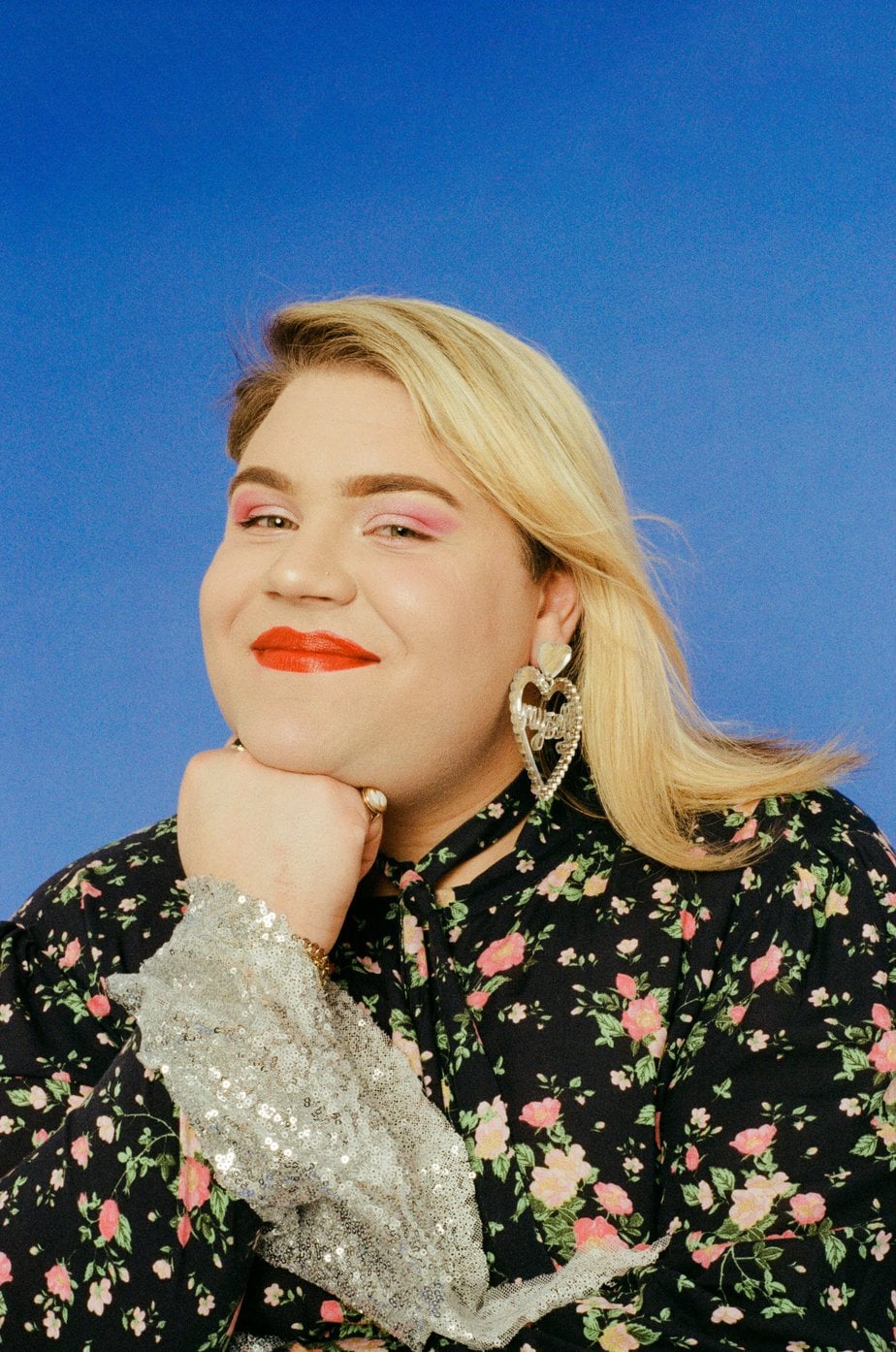Regardless of the inclusive acronym you like to use, the letters stand as pillars of solidarity. Under this umbrella, so many sexualities, identities, and genders can happily coexist. One of those sexualities – asexuality – is what this article seeks to discuss and illuminate.
Now whether you understand what asexuality, or any other identity, means or not, we are here to remind you that a huge variety of identities, sexualities and blends of both are valid. Learning about the differences that exist in this world is the only way forward!
What is a Sexual Orientation?
Sexualities are a way of categorising and understanding our desires for other people. They are a shorthand way of saying who we are attracted to, essentially.
Sexuality itself, like gender, is fluid, and can change for a person over time. Each person’s journey with sexuality is personal and unique. That being said, sexuality has been categorised with the intention of creating ease of communication, and self – identification. It’s good to remember, however, that any time categories for people are created they are just loose concepts that are meant to serve, and not to entrap, people. It is rare for anyone to fit into categories (or boxes) neatly. We’re moving, living beings! Each person’s experience of sexuality and gender might change, or might not fit in any particular category at any given time – and that’s completely normal.
What Is Asexual Orientation?
So what does asexual mean? If you know anything about Greek, you will know that ‘a’ is a prefix that means not or without. So if someone is asexual it means that they are a person with low, or no, sexual desire. This does not always mean that they will avoid sexual encounters with others. Some asexual people may be romantically orientated, for instance, and may choose to have sex with partners as an expression of their connection with them. Other asexual people may engage in sex motivated by reasons other than sexual desire or romantic attraction. It is a common misunderstanding that all asexual people are sex averse. While this may be true for some asexual people, this is not a rule for all asexual people. Ultimately, how asexuality manifests is unique to each asexual individual.
Asexuality has existed as long as people have, but we can attribute the first documentation to Magnus Hirschfeld, a German sexologist who coined the term ‘anesthesia sexual’ in his work ‘Sappho und Sokrates’, in the late 1890s. This was then adapted into the term asexual in the 1940s. Fast forward to today and we use asexuality as part of the full spectrum of sexualities expressed and experienced by people all over the world.
Is Asexuality Low Libido?
It’s important to understand that asexuality is not the same thing as allosexual people (those who experience sexual attraction) having periods of low libido. Although someone who is asexual may experience fluctuations in their level of interest in sex, on average they will have signifcantly less desire than allosexual people.
Asexuality is not a form of sexual dysfunction that needs to be cured. It is, like other forms of sexuality, a way that many people express their understanding of how they seek to engage sexually with others in a way that feels fulfilling to them.
I’ve seen people use Ace – what’s the difference?
Ace is a shortened term for asexual. As with so many of the identities and sexualities in the LGBTQIA+ spectrum, those who identify with certain terms sometimes create a shortened version that is easier and quicker to say, type, and spot in copy. It is very similar to some non-binary people using enby, or transgender being shortened to trans.
To be clear ace and asexual are interchangeable and mean the same thing. How someone chooses to say/write their sexuality is completely up to them – and there is no right or wrong way to do this.
The Specturm Of Asexuality
Many agree that asexuality exists on a spectrum, with different people feeling differently about how they express and experience their asexuality.
Can Asexual People Fall In Love?
Asexual people, as we have discussed, are people with consistently low or non-existent sexual desire. So does this rule out meaningful relationships for them? No, not at all. Many asexual people may not form sexual connections, but some do want to form romantic relationships.
Sex is part of many romantic relationships, but not all, and many asexual people form meaningful romantic relationships in their lives without sex, or with sex on terms that suit them and their asexuality. Some ace people are also aromantic, meaning that romantic connections hold no interest for them either. Aromantic people are still capable of forming close and meaningful friendships, and can still be connected very deeply to other important people in their lives such as family members. A tendency towards asexuality and or aromanticism does not exclude these people from having important relationships of different natures in their lives – something that societies that uphold romantic attachment as the pinnacle of human connection and (for many people, particularly women and other people assigned female at birth) as the ultimate human achievement often fail to understand.
Have Asexual people just lost interest in sex?
Lots of people on the LGBTQIA+ spectrum have had the gross, invasive and disrespectful experience of meeting people who assert they could “turn” them. These are the same poorly educated people who would suggest that asexual people “just haven’t had sex with the right person yet”.
*insert heavy eye-roll*
Asexuality is not a recent lack of interest in sex, or bad experiences putting you off sex. Nor is asexuality the same thing as abstinence or avoiding sex, although asexual people may also be abstinent.
These kinds of boorish assertions are really poor behaviour, and do not reflect at all on the validity of anyone’s identity or sexuality on the LGBTQIA+ spectrum or otherwise. If you meet someone who asserts that they are asexual, respect that. It is not a challenge to your desirability, or prowess. It is who they are, and it has literally nothing to do with you.
So no sex, ever?
Well, as mentioned earlier, some asexual people will choose to have sex, and there are no hard and fast rules as to when or why or how this might happen. They may choose to have sex to feel closer to a partner after they have formed a connection, or they may choose to have casual sex as part of their dating life. Asexual people may engage in solo sex and masturbation. Some ace people will experience physical arousal and orgasm. None of these things invalidate their identity as asexual.
Asexuality is not
Just so you have a clear takeaway, asexuality is not:
- abstinence, based on religious beliefs
- a dysfunctional relationship with sex
- fear of intimacy
- a loss of libido due to many circumstances such as illness, age etc
- a fear of rejection
One main thing about asexuality, like so many of the identities and sexualities under the LGBTQIA+ umbrella, is that it is not a monolith experience. This simply means that how someone experiences their asexuality will vary, not only from other aces but also over time with themselves.
One of the most derailing things we experience is when other people try to apply rules or patterns to our existence, which refutes our individual experience.
This article has aimed to cover the depth and breadth of the ace spectrum, but you may meet an ace person who has a different experience, or you may be an ace person yourself with a different view on how you understand your sexuality – and guess what? This is valid!
If you’re looking to learn more about asexuality, here are a couple of great places to start.
Tinder Interview: Asexual People Explain What Asexuality Means To Them
The Asexual Visibility and Education Network
Stonewall: Six Ways To Be An Ally To Asexual People
GLAAD: Seven Young People Discuss Their Ace Identities

Ben (they/them) is a writer, speaker, content creator, LGBTQIA advocate, and soon to be author! They have worked with major brands such as Amazon Prime, Oliver Bonas, Matalan and many more. They uplift and educate through media; with their website benpechey.com, The Happy Place podcast, and legendary Instagram Stories. They have had words in print and online for Cosmopolitan, Women’s Health, The Guardian and many more.

